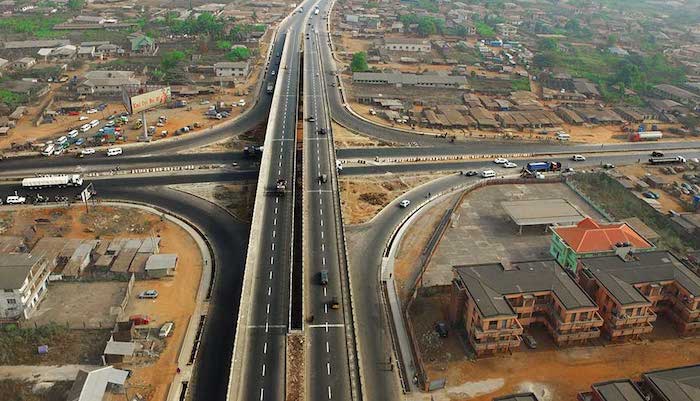The Impact of Infrastructure Development on Property Value in Nigeria
Infrastructure development plays a crucial role in shaping real estate markets across the globe. In Nigeria, the relationship between infrastructure and property value is particularly significant due to the country’s rapid urbanization, population growth, and economic transformation. This post will explore how various infrastructure projects—ranging from transportation networks to utilities—impact property values in Nigeria, and why understanding this relationship is essential for investors, homeowners, and policymakers alike.
The Importance of Infrastructure in Real Estate
Infrastructure encompasses the fundamental facilities and systems that support the functioning of a society. This includes transportation (roads, railways, and airports), utilities (water, electricity, and sewage systems), and social amenities (schools, hospitals, and parks). Well-developed infrastructure enhances accessibility, improves living standards, and boosts economic activities, all of which contribute to the desirability and value of properties in a given area.
Key Areas of Infrastructure Development Impacting Property Values
- Transportation NetworksTransportation infrastructure, including roads, railways, and airports, is one of the most critical factors influencing property values. Improved transportation links reduce travel time and enhance connectivity between neighborhoods and commercial centers. For instance, the ongoing expansion of the Lagos Rail Mass Transit system is expected to significantly increase property values in areas along the rail routes by making commuting easier for residents.
In contrast, poor transportation infrastructure can lead to increased congestion and accessibility issues, negatively impacting property desirability and values. Areas with well-maintained roads and access to major highways often see higher property appreciation rates compared to neighborhoods with inadequate transportation options.
- Utilities and Basic ServicesReliable access to utilities such as electricity, water, and sewage systems directly affects property values. In Nigeria, many areas still face challenges related to inconsistent power supply and water scarcity. Properties located in areas with dependable utility services tend to command higher prices and attract more buyers.
For example, neighborhoods that benefit from public-private partnerships aimed at improving power supply, like those seen in certain Lagos and Abuja communities, often experience an uptick in property values. Conversely, areas plagued by utility shortages may see stagnant or declining property prices.
- Social AmenitiesAccess to essential social amenities—such as schools, hospitals, parks, and recreational facilities—plays a vital role in determining property values. Families, in particular, prioritize proximity to good schools and healthcare services, which can lead to higher demand for properties in such locations.
For instance, areas in Abuja with reputable schools and well-maintained parks tend to see higher property values. The presence of these amenities not only enhances the quality of life but also increases demand, thereby driving up property prices.
- Urban Development ProjectsLarge-scale urban development projects can transform the economic landscape of a region and dramatically increase property values. Initiatives such as the Lagos State Government’s “Lagos Master Plan” aim to create sustainable urban environments by improving infrastructure and promoting mixed-use developments.
These projects often attract investments, leading to job creation and population influx. As demand for housing and commercial space rises, property values in those areas tend to increase. Investors who can identify and capitalize on emerging urban development projects can benefit significantly from the resultant property appreciation.
- Public Transport InitiativesThe establishment of public transport systems—like the Bus Rapid Transit (BRT) in Lagos—serves as a catalyst for property value appreciation. Such initiatives reduce dependency on private vehicles, making neighborhoods more attractive due to decreased congestion and improved air quality.
Properties located near bus stops or transit hubs often experience higher demand, leading to increased rental rates and property prices. The expansion of public transport options can stimulate real estate development in previously underdeveloped areas.
- Government Policies and InvestmentsGovernment policies aimed at enhancing infrastructure can have profound effects on property values. Initiatives such as tax incentives for developers, funding for infrastructure projects, and policies aimed at promoting foreign investment can create favorable conditions for real estate growth.
For example, the Nigerian government’s efforts to improve road networks across the country can lead to increased accessibility, thus enhancing property values in affected areas. Investors should keep an eye on government announcements regarding infrastructure investments, as they can signal potential opportunities for property appreciation.
The Ripple Effect of Infrastructure Development
The impact of infrastructure development extends beyond immediate property values. Improved infrastructure often leads to broader economic growth, creating a positive feedback loop. As property values rise, local governments may see increased tax revenues, allowing for further investments in community amenities and services. This, in turn, attracts more residents and businesses, perpetuating the cycle of growth and appreciation.
Conclusion
Understanding the impact of infrastructure development on property values is essential for anyone involved in the Nigerian real estate market. From transportation networks and utility services to social amenities and government initiatives, various factors contribute to the desirability and value of properties.
Investors, homeowners, and policymakers should remain vigilant about ongoing and planned infrastructure projects, as these can provide valuable insights into market trends and opportunities. By recognizing the interconnectedness of infrastructure and property values, stakeholders can make informed decisions that enhance their investments and contribute positively to community development.
As Nigeria continues to evolve and modernize its infrastructure, the potential for property value appreciation remains significant. By focusing on areas poised for growth due to infrastructure improvements, investors can position themselves advantageously in this dynamic market. Whether you are a seasoned investor or a first-time homebuyer, understanding these factors will enable you to navigate the real estate landscape more effectively and maximize your returns.

